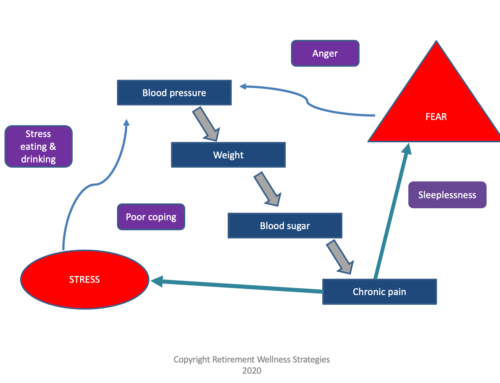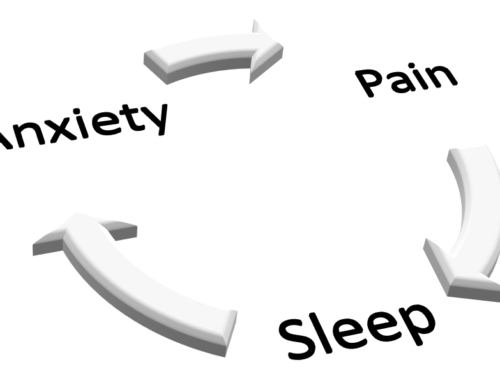
Know your optimal operating conditions
What are your optimal operating conditions? How often do you change the oil in your car? How warm/cool do you keep your home? How often do you change your furnace filter? When do you change your car’s tires?
I find we tend to be more aware of these guidelines for our cars and homes than we do for our bodies. Perhaps it is more clearly communicated how to care for your car or your home.
Most people find a temperature of 72 degrees Fahrenheit to be comfortable. Your car’s tires were designed to perform best when driving at the speed limit. You car’s oil is designed to lubricate the moving parts of your engine for 3500 miles (up to 7-10,000 if synthetic).
Our bodies have been designed to operate BEST within certain parameters. Do you know the numbers that will help keep you most healthy? Here are a few.
Your Best Numbers for your Heart
Why are your blood pressure and pulse checked every visit to your doctor? It is because there is an optimal range to help your heart stay in top performance.
Pulse 60-90 bests per minute
Blood pressure under 140/90 without being dizzy
When your heart beats in this range, it is able to fill with the right amount of blood with each beat. It can also send out to the body the right amount of blood with each pump. If your heart pumps too slowly, there might not be enough blood per pump to get enough to all of the other parts of the body. Similarly, when the heart pumps too fast, each squirt is just a small amount of blood rather than a full load. Those small quick squirts don’t get enough blood throughout the body where it is needed.
When your blood pressure is too high, it makes your heart work extra hard. Think about a body builder gradually increasing his muscle mass. If he tries to lift too much weight all of a sudden without working up to that weight, he is likely to hurt himself. He could even rip or harm a muscle to the point his weight lifting days are over. When your blood pressure shoots up quickly or it stays high over time, you move from a strong heart muscle to an injured heart muscle. A heart attack is destruction of part of the muscle wall. Once part of the heart is no longer working correctly, the rest of heart has trouble doing its work. It has to compensate for the wounded part.
Your Best Numbers for your Sugar
At least yearly during your physical, your doctor checks your blood sugar. Sugar (technical term glucose) is essential ‘food’ for your cells. Now, sugar doesn’t just come from eating sugary, sweet food. It is the result of your body breaking down other foods into usable cell ‘food’. There are a lot of other ways the body stores, releases, and breaks down sugar. Also, insulin is what helps that sugar ‘food’ get into the cell. Your body works best when your sugar is in the optimal range, and you have the right amount of insulin to keep it in that range.
Blood glucose 60-110 mg/dL if you do not have diabetes. (Your goal might be a bit higher if you have diabetes – talk with your doctor).
A1c (glycosylated hemoglobin – this gives an indication of your blood sugar over the last 90 days)
4-5.6% if you do not have diabetes
5.7-6.4% your doctor will talk with you about ways to make changes with your diet and exercise to avoid diabetes
less than 6.5% goal for well-controlled diabetes
just over 6.5% for some people with diabetes
– your doctor will help decide your best goal
When your blood sugar is too low, you get dizzy, shaky, sick to your stomach, you sweat, and it is hard to think clearly. When your blood sugar is too high, it causes damage throughout your body. Uncontrolled blood sugar can lead to poor kidney function, blindness, and loss of feeling in your hands and feet and other parts of your body. Also, type 2 diabetes is linked with high cholesterol, heart disease, stroke, high blood pressure, and being overweight.
Your Best numbers for your Weight
Your weight is also checked with nearly all doctor visits. Extra weight is hard on a lot of parts of your body. It creates more work for your hips, your knees, your ankles, and your feet. You are more likely to have diabetes. There are more cells to feed, beyond what your body was intended to feed. Your risk of heart attack and stroke go up. Your risk of falls goes up.
Your ideal weight is linked with your height. There are two best ways to determine if your weight is in a healthy range. One deals with your total weight. The other pertains to where you carry your extra weight.
Body Mass Index (BMI) – you can calculate your BMI here. It is based on your height.
Your BMI should be between 18.5 and 24.9
Waist Circumference – see this link to learn how to measure your waist circumference.
Women should be less than 35 inches
Men should be less than 40 inches
Can you live with numbers that are outside the normal range? Yes, you can. There will be consequences, though. When we live outside of the optimal range, systems don’t function as efficiently. They don’t operate like they were designed to operate.
Note, medications can help with these numbers. And, in all of these circumstances, our daily choices are also important to maintain optimal operating conditions. What we eat, how much we sit, how we exercise, and how we control our stress are also important in staying in these goal ranges. So, you have a lot of ability to help control your numbers!
Please contact us at Meds MASH to learn more about how to stay in your optimal operating conditions! You can reach us at 410-472-5078 or www.medsmash.com/contact.
For further application, check out my personal blog.
Image source: Medline Plus, National Institutes of Health, U.S. Department of Health and Human Services.





